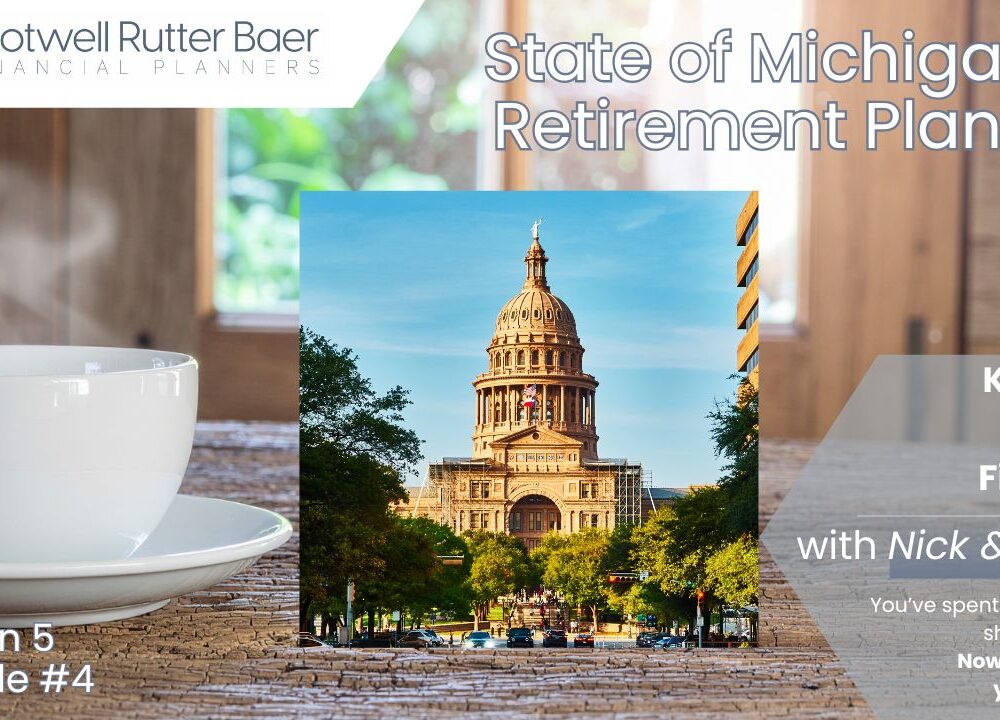Lessons From a Year with Covid

Podcast: Play in new window | Download
How has the economy been impacted by Covid in the last twelve months?
It’s been 12 months since the markets first felt the impact of the global Coronavirus pandemic. It’s been a crazy year. The market, our lives, and our emotions have been on a rollercoaster. Nick and I put together a list of our favorite financial planning and investing lessons from the strangest year of our lives.
#1. Predicting the markets is a fool’s errand.
In the first few weeks of 2020, the stock market was pushing to new highs. The main concerns regarding the markets and the economy were that a trade war with China might escalate. Also, that inflation might begin to rise as the economy neared full employment. As news of the pandemic began to take shape, we witnessed one of the sharpest market – drops in history. This was followed by a rapid recovery as government intervention arrived to support the economy and the scope of economic damage became clear.
I’ve heard anecdotally from people who were able to time the market, getting out before too much damage was done, and getting back in before the markets fully recovered. However, none of these stories has equated to anything more than luck or a hunch. For every one of those success stories, we can point to others that didn’t work out nearly as well.
#2. Understand your tolerance for risk
Covid forced us to think about what declines are like while the markets are good. Mid-March 2020 was not the time to be thinking about the risk level in your asset allocation. Your tolerance for risk fluctuations in your portfolio due to the market needs to be evaluated before you invest rather than in the middle of a sharp decline.
History shows that declines happen regularly, as do recoveries. Second-guessing your risk tolerance in the middle of a steep decline leads to bad decisions. Of course, for new investors, it is often difficult to understand the emotions an investor experiences during a decline until you have lived through one yourself. If what happened in early 2020 was new to you, take that into account and revisit your portfolio risk now that the market is stronger again.
#3. Hard lessons learned during the financial crisis stayed with individual investors.
I was an advisor during both the tech crash of the early 2000s and the financial crisis. Those slow, grinding bear markets tested the conviction of everyone involved. As I spoke with clients last spring, I expected much more despair and many more to want out of their stock holdings. I went into calls expecting I was going to have to do a lot of convincing to keep people invested. However, I found that most of the people with whom I spoke had already braced themselves and were willing to stay put. Part of that was the importance of other matters like our health and livelihoods took precedent over portfolio outcomes. But those conversations also revealed that many people had learned hard lessons in the past and knew the importance of staying invested this time around.
#4. Keep an emergency fund and cash available for immediate expenses.
It is much easier to stay with an investment plan when you know that you have money in the bank to cover short-term needs. That includes having an emergency fund and money to cover things you know you need to do in the next 12-24 months. The emergency fund should be big enough to cover 3-6 months of expenses. An emergency fund protects against unforeseen disruptions to your income – disruptions perhaps related to a global pandemic.
Knowing that you don’t need anything from your investment portfolio makes it easier to ignore market downturns and wait for a recovery. Last year also underscored the idea of correlation when it comes to bad events: a loss of income due to an economic disruption will often occur while the stock market is taking it on the chin, making those safe emergency funds even more important.
#5. Align your spending with your values.
Often, we spend money on things without giving a lot of thought to how that spending aligns with our values. Conversely, sometimes we feel guilty about spending money on something but shouldn’t because that expense is important to us. When the pandemic rolled in, and the economy shut down, we had to give up a lot of non-essential activities.
We sheltered in place without being able to travel for recreation, see friends and family, go out to eat, or attend theater and sporting events. Having to go without modern life’s extras helped us realize what we missed and what we didn’t miss. We saw financial planning goals shift to reflect an emphasis on families, as well as how we spend our time. This shift in focus usually occurs when a client is faced with a serious illness or a death in the family.
#6. Your physical health is an important financial asset.
Many of the health issues arising from COVID-19 relate to underlying financial conditions. The strain on the medical system was obvious. However, we might just be scratching the surface of what Covid means for the health industry moving forward. Health costs were already rising at a much higher rate than inflation and that may worsen due to the pandemic’s pressures. There are many inexpensive preventative measures we can take as individuals to decrease future costs and complications down the road. If you invest in anything after living through the pandemic, your own health should be at the top of the list. Maintaining your physical health reduces medical expenses down the road.
The Wrap Up: a Year with Covid
What lessons have you learned in the past year regarding your healthy, priorities, savings, and investing? If you have any questions or concerns about your investments, give us a call today.
Get the most out of life. What is your vision for your ideal future? Creating a plan to accomplish your goals will give you peace of mind so you can do what is truly important to you TODAY, TOMORROW, and for however long you choose.
About Shotwell Rutter Baer
Shotwell Rutter Baer is proud to be an independent, fee-only registered investment advisory firm. This means that we are only compensated by our clients for our knowledge and guidance — not from commissions by selling financial products. Our only motivation is to help you achieve financial freedom and peace of mind. By structuring our business this way we believe that many of the conflicts of interest that plague the financial services industry are eliminated. We work for our clients, period.
Click here to learn about the Strategic Reliable Blueprint, our financial plan process for your future.
Call us at 517-321-4832 for financial and retirement investing advice.
Share post:
